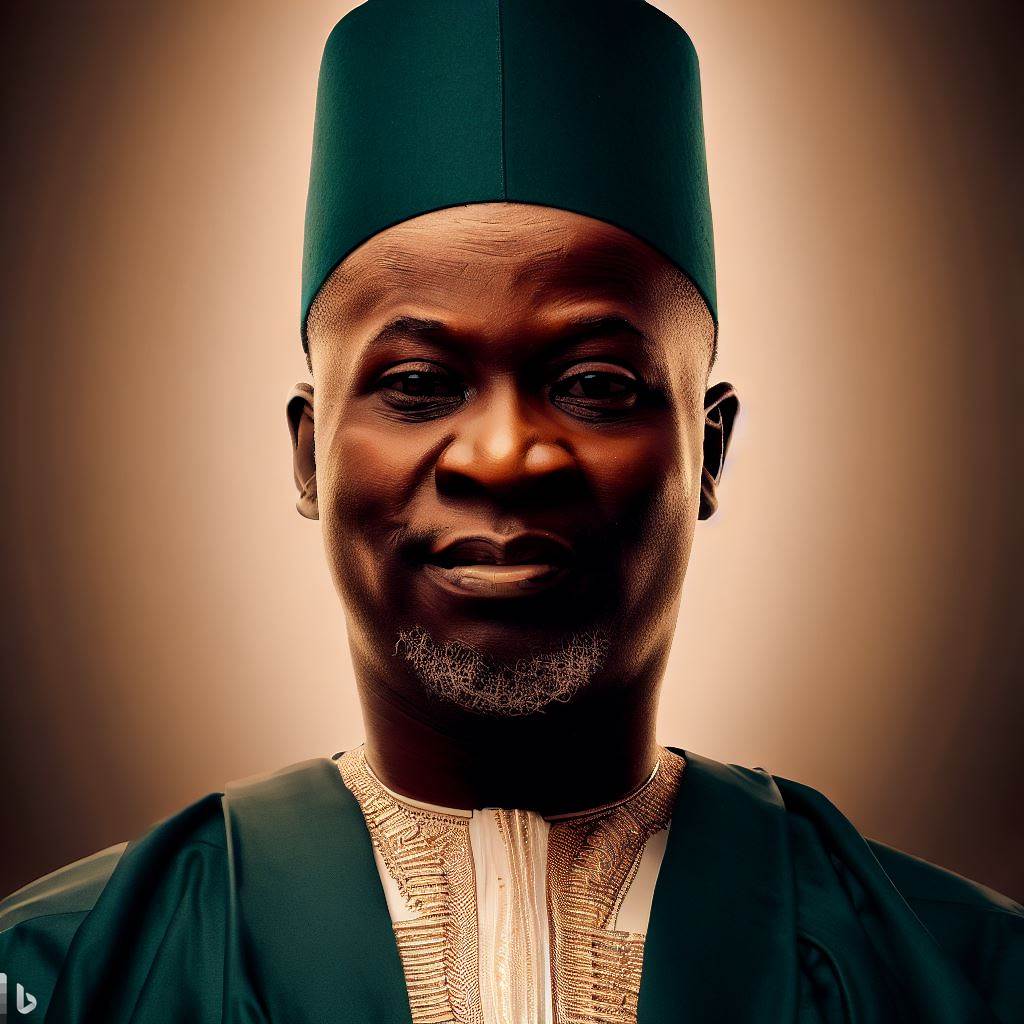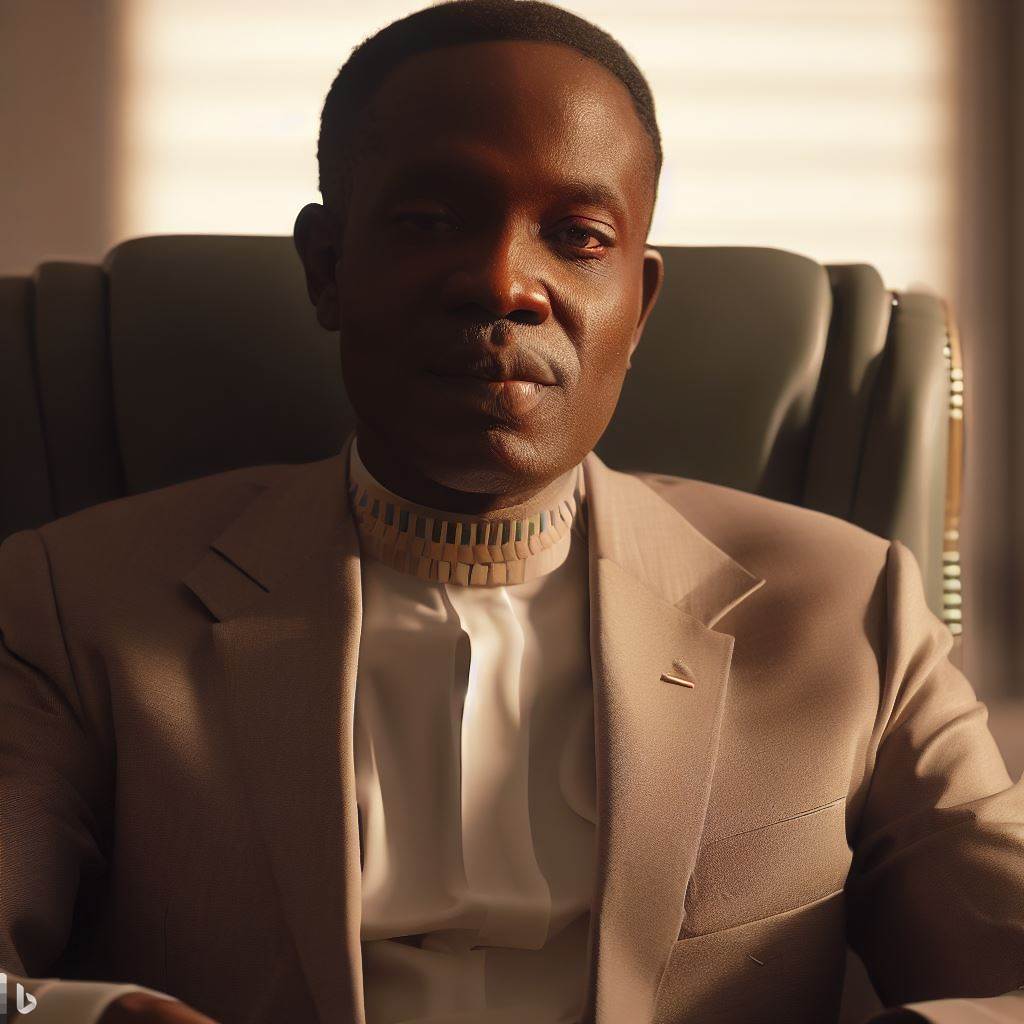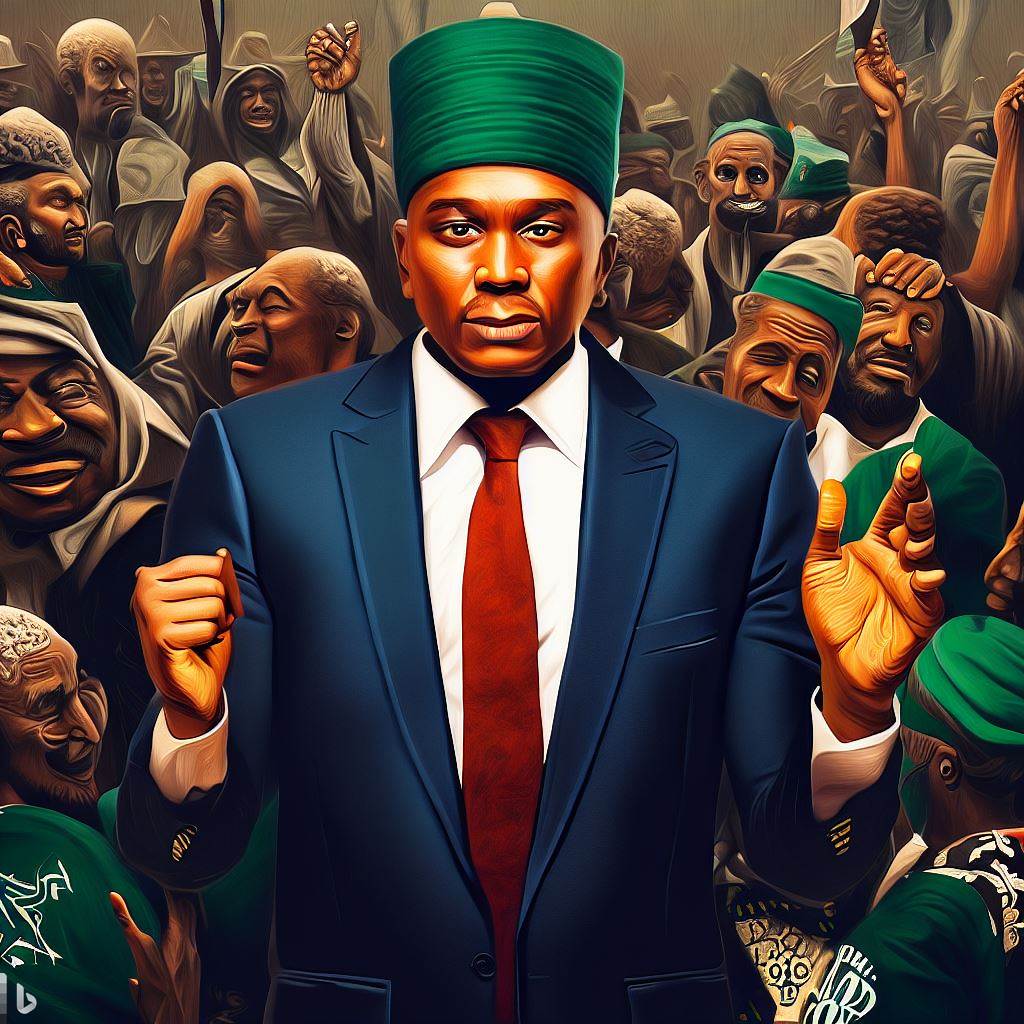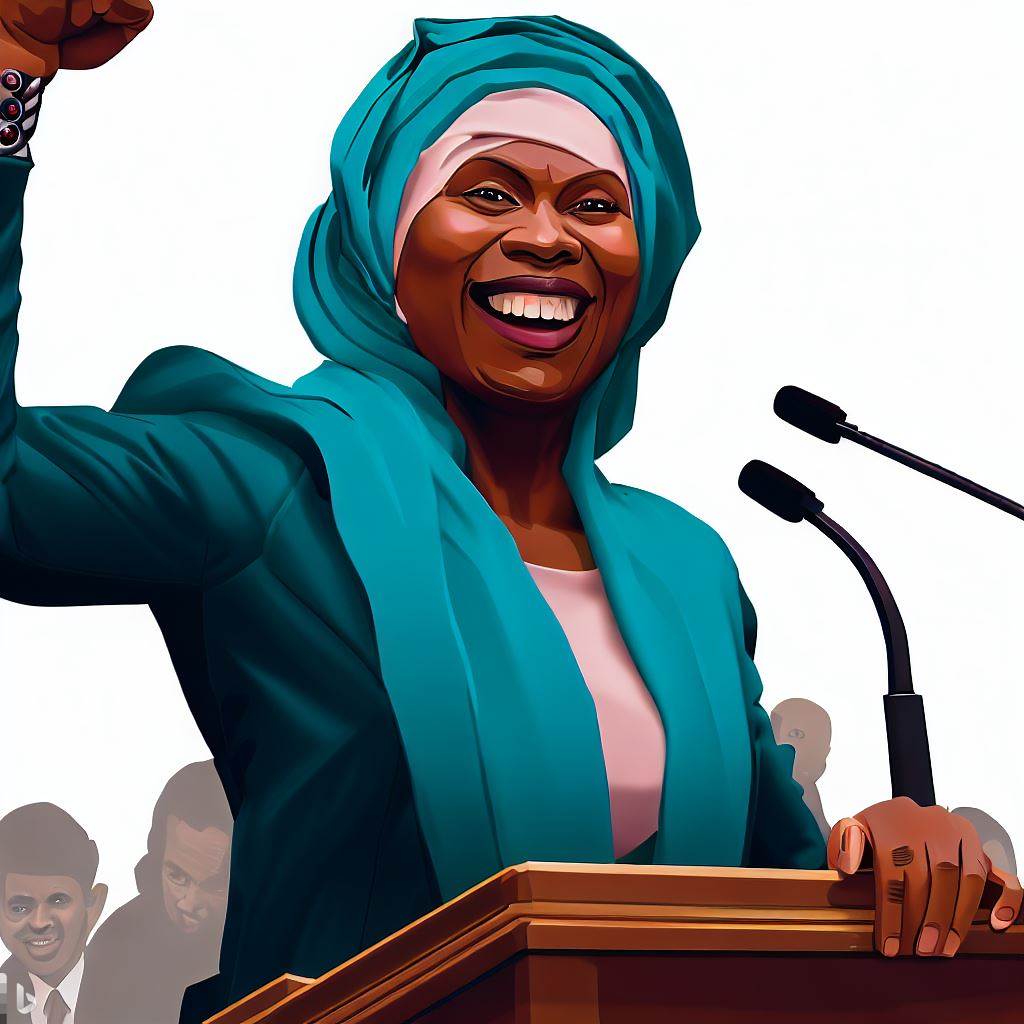Introduction
Nigeria is a West African country with a population of over 200 million people and is one of the leading economies on the continent. Nigeria’s military strategy has evolved over the years, from dealing with internal conflicts to supporting peacekeeping missions on the continent and beyond.
It is essential to examine Nigeria’s military strategy as the world experiences changing dynamics, such as terrorism, cyber warfare, and globalization. Understanding the country’s military tactics will help in addressing security challenges and positioning Nigeria as a regional power.
Historical Context of Nigeria’s Military Strategy
Understanding the historical context of Nigeria’s military strategy is vital in comprehending the country’s current approach to defense and security.
This section will provide an overview of Nigeria’s traditional military strategy, changes in military strategy during the colonial era, and post-colonial military strategy and its effectiveness.
Overview of Nigeria’s Traditional Military Strategy
In pre-colonial Nigeria, military prowess was highly valued, and societies were organized around a system of warrior-chiefs. The military was used to protect the community from external aggression, as well as to enforce the laws and customs of the society.
Military training started at a young age, and there were specialized units for various types of warfare, such as horsemen, archers, and foot soldiers. Despite the decentralized nature of pre-colonial societies, the military played a critical role in maintaining stability and security.
However, with the arrival of Europeans, Nigeria’s military strategy underwent significant changes. What were these changes?
Changes in Military Strategy during the Colonial Era
During the colonial era, Nigeria’s military strategy shifted from being defensive to offensive. The British colonial administration introduced new tactics and technologies such as machine guns, artillery, and naval warfare.
The British also established a centralized military structure, the West African Frontier Force, made up of various troops from various regions. The structure aimed to safeguard British interests and control the territory.
In fact, the British administration heavily depended on loyal Hausa-Fulani soldiers. However, this practice created resentment and division among the local populations, leading to the Nigerian Civil War in 1967.
Read: Government and Military in Nigeria: A Symbiotic Relationship
Post-colonial Military Strategy and its Effectiveness
After Nigeria gained independence in 1960, the military continued to play a significant role in the country’s politics and governance. However, the effectiveness of Nigeria’s post-colonial military strategy has been mixed.
On various occasions, Nigeria’s military has displayed tactical and operational capabilities, evident in its contribution to peacekeeping operations in Liberia and Sierra Leone. However, the military has also faced challenges such as corruption, inadequate funding, lack of equipment, and poor morale.
Furthermore, the military has been accused of various human rights abuses, including extrajudicial killings and torture. These allegations have eroded public trust and confidence in the military and have strained the relationship between the civilian government and the military.
Nigeria’s military strategy has evolved over time, reflecting the country’s political, social, and economic context. While Nigeria’s traditional military strategy prioritized defense and protection of the community, the colonial era introduced new tactics and technologies that focused on control and domination.
Today, Nigeria’s military strategy faces numerous challenges, including corruption, inadequate funding, and human rights abuses. The military must address these challenges to restore public trust and confidence and improve its effectiveness in securing the country’s defense and security.
Read: Becoming a Military Officer in Nigeria: A Step-by-Step Guide
Nigeria’s Military Strategy in the 21st Century
Nigeria’s Current Military Strategy
Their strategy is focused on defeating Boko Haram, ending insurgency in the northeast, and ensuring national security and stability. This strategy is based on a combination of counterinsurgency operations, intelligence gathering, and community engagement.
The military also has a peacekeeping role in various African countries, as Nigeria is committed to promoting peace and security across the continent.
Shifts in Military Strategy in Response to Changing Global and Regional Situations
Nigeria’s military has had to adjust its strategy in response to changes in the global and regional security landscape. For example, the rise of ISIS and other terrorist groups has led Nigeria to increase its counterinsurgency efforts and engage in international collaborations to combat terrorism.
The military has also had to deal with the proliferation of small arms and light weapons, which fuel conflicts and violence in the country and the region. As a result, Nigeria has been working with regional partners to address these challenges.
Challenges Faced by Nigeria’s Military Strategy in Recent Years
- The lack of adequate funding for the military to carry out its operations effectively.
- The human rights abuses committed by some members of the military in the course of their operations.
- The lack of modern equipment and technology to tackle emerging security threats.
- The insufficient training and capacity building for the military to handle complex security challenges.
- The politicization of the military and its involvement in partisan politics.
- The increasing threat of cyber warfare and the need for the military to build capacity in this area.
Despite these challenges, the military has made significant progress in its fight against Boko Haram and other insurgents. It has also played a critical role in maintaining peace and stability in Liberia, Sierra Leone, and other African countries.
However, there is still a need for sustained investment in the military, both in terms of funding and capacity building. The military must also embrace professionalism and uphold human rights in its operations, and avoid politicization.
These steps would go a long way in ensuring that the military is well-positioned to tackle emerging security challenges in the years ahead.
Read: Government Policy and Its Impact on the Nigerian Military
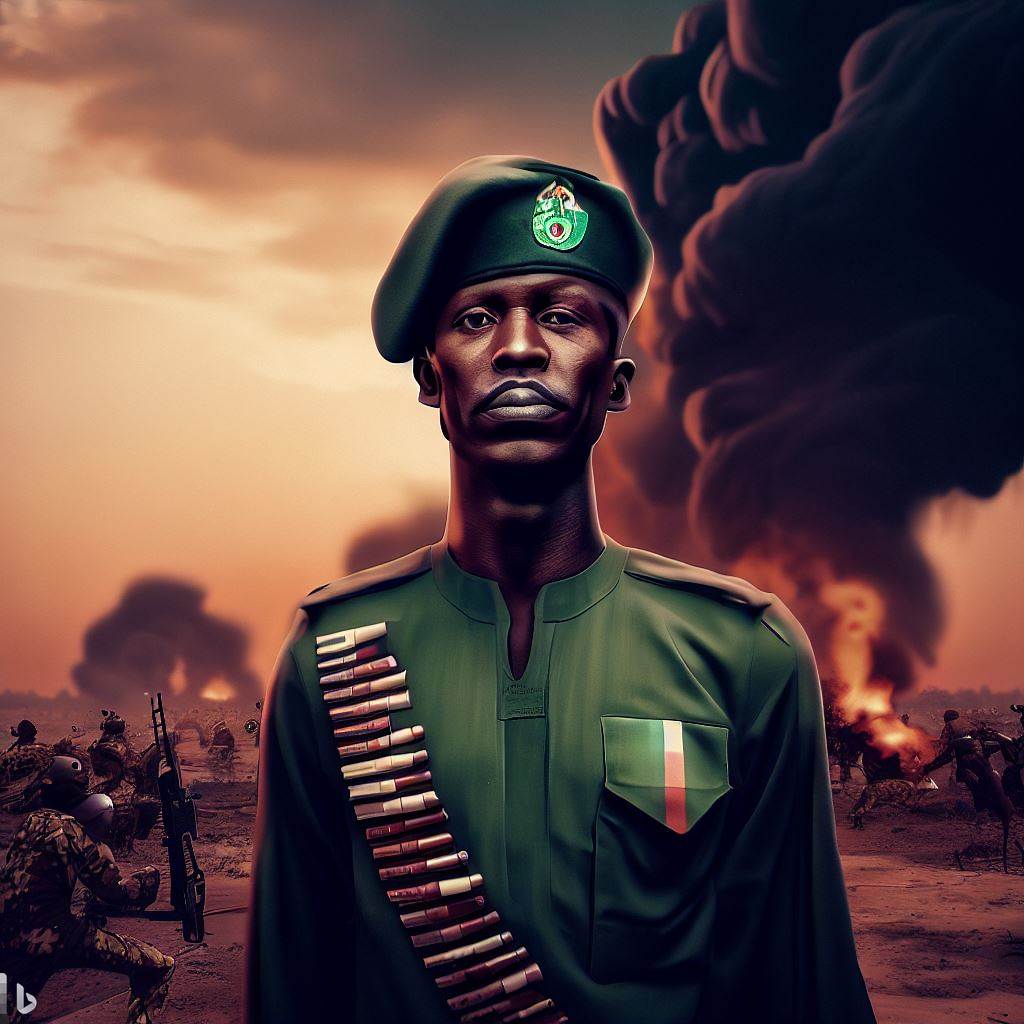
Analysis of Nigeria’s Military Strategy
Nigeria, as a nation, has always placed a significant emphasis on its military. In an ever-changing world, it is essential for Nigeria to have a robust military strategy to protect its sovereignty and ensure peace within its borders.
In this section, we will critically evaluate Nigeria’s military strategy, examine its military capabilities, and assess its strengths and weaknesses.
Critical Evaluation of Nigeria’s Military Strategy in the Context of Modern Warfare
In recent years, the nature of warfare has significantly evolved, and Nigeria’s military strategy must adapt to these changes. Nigeria’s military is currently structured to fight conventional wars, where conflicts are predominantly fought on land and sea.
However, terrorism and insurgency activities have become a global threat, and Nigeria has faced significant security challenges from groups like Boko Haram and the Islamic State West Africa Province (ISWAP).
Thus, Nigeria’s military strategy needs to evolve to counter asymmetric warfare, where non-state actors with fewer resources can inflict significant damage on the state.
Nigeria must focus on building its counter-terrorism capabilities, training its troops on the use of intelligence, surveillance, and reconnaissance (ISR) technology, and enhancing its special forces.
Examination of Nigeria’s Military Capabilities
Nigeria’s military is one of the largest on the African continent, with over 200,000 active personnel. It has four branches: the Nigerian Army, the Nigerian Navy, the Nigerian Air Force, and the Nigerian Armed Forces.
Nigeria’s military capabilities are predominantly defensive in nature, as it does not have the capacity to project its power outside the country.
The Nigerian Army is the largest branch of the Nigerian Armed Forces, and it has been at the forefront of counter-insurgency operations against Boko Haram.
On the other hand, the Nigerian Navy is responsible for securing Nigeria’s coastlines, while the Nigerian Air Force provides air support for ground troops and conducts aerial surveillance activities.
Although Nigeria’s military has modern equipment, including fighter jets and drones, they have suffered from underfunding, corruption, and mismanagement, hindering their operational effectiveness.
In addition, the military has faced challenges with low morale and poor discipline, leading to accusations of human rights abuses.
Strengths and Weaknesses of Nigeria’s Military Strategy
The strength of Nigeria’s military strategy lies in its counter-insurgency capabilities. The Nigerian Army has shown considerable success in recent years, pushing back Boko Haram and other extremist groups.
Nigeria’s military has also improved coordination with its neighbors, including Cameroon and Chad. However, Nigeria’s military strategy has several weaknesses. Firstly, its over-reliance on ground troops, neglecting its air and naval capabilities.
Secondly, the Nigerian military suffers from a lack of operational coordination, particularly among the different branches of the armed forces.
Thirdly, Nigeria’s military has been plagued by corruption, particularly in the procurement of equipment.
In essence, Nigeria’s military must evolve its strategy to adapt to modern warfare. This includes enhancing its counter-terrorism capabilities, investing in ISR technology, and improving coordination among its branches of the armed forces.
Addressing corruption and improving discipline and morale must be a priority, as they significantly hamper operational effectiveness. Nigeria has a tremendous opportunity to build a military that protects its sovereignty and enhances its regional and global influence.
Read: Nigeria’s Military: Service Branches Explained
See Related Content: Technology in Nigeria’s Military: Officer Insights
You Might Also Like: Challenges and Triumphs: A Nigerian Politician’s Journey
Conclusion
Overall, Nigeria’s military strategy in a changing world has been analyzed from various angles, and some key findings have emerged.
We discussed how Nigeria’s military has been able to adapt to changing conditions in the global security landscape, as evidenced by its participation in peacekeeping missions and its collaboration with regional and international partners.
Additionally, there is still a lot of room for improvement, particularly in terms of modernizing equipment, increasing funding, and improving training and morale.
In terms of future prospects, it is clear that Nigeria faces several challenges, including internal security threats, insurgency, and economic instability. However, Nigeria also has significant potential, given its large population, resources, and strategic location.
Nigeria must develop a robust and forward-looking military strategy to capitalize on these advantages in the 21st century. The country demonstrates a clear commitment to actively and positively contribute to global security.
Despite facing challenges, the country remains optimistic as it progresses in building a stronger foundation. more effective military. Ultimately, the success of Nigeria’s military strategy will depend on the country’s ability to adapt to a rapidly changing world and to leverage its resources and partnerships in innovative ways.

